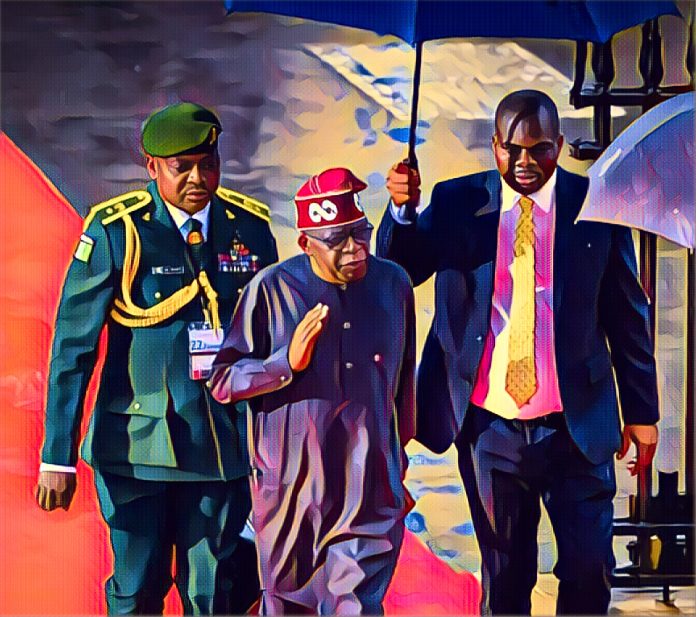KEY POINTS
- DSS replaces Adegboyega Fasasi as chief security officer to Tinubu.
- Fasasi is leaving the role to pursue a professional training course.
- Rasheed Lawal, a deputy director, has been appointed as the new CSO.
Rasheed Atanda Lawal, a deputy director in the Department of State Services (DSS), has been appointed as President Bola Tinubu’s chief security officer (CSO), formally succeeding Adegboyega Fasasi. Although there were few specifics available as of Sunday night, Lawal’s hiring represents a major change in the president’s security team.
DSS announces replacement of Tinubu’s chief security officer
Fasasi, who has been the CSO since Tinubu’s inauguration in May, is resigning to take a professional training course, according to people acquainted with the matter. Insiders claim that DSS Director-General Tosin Ajayi pleaded with President Tinubu to grant Fasasi’s release, arguing that the training would help him advance in his career. The training course’s location and duration, among other specifics, were not made public.
Several sources stressed that such changes are common in security operations, particularly when a new director-general comes over at the DSS, despite some in political and security circles speculating on potential problems or underlying reasons for the transition. They added that Fasasi’s departure shouldn’t be seen as a sign of internal strife.
Fasasi steps down for professional training course after serving since May
Speaking on condition of anonymity, a source with knowledge of the DSS stated that when a new DG is appointed, “changes like this are not unusual.” “Usually, the new director-general wants to appoint reliable people to important roles, particularly in extremely delicate areas like the president’s security detail.”
Although Fasasi’s training course is officially linked to his departure, the source admitted that there is always a chance that other considerations had a role in the decision. The source did, however, suggest that the modification be accepted as standard procedure in the security community.
According to a report by Vanguard, as of Sunday, neither the DSS nor the presidency had issued a formal statement confirming the changes in the CSO’s office. Another unnamed source, however, confirmed that the incident was a standard security posting, pointing out that such changes are common, especially in high-profile security operations.
It is anticipated that Rasheed Lawal, the newly appointed CSO, will continue to supervise the president’s safety as he gets used to his new position. In the upcoming weeks, further information regarding Fasasi’s training and future with the DSS should become available.



